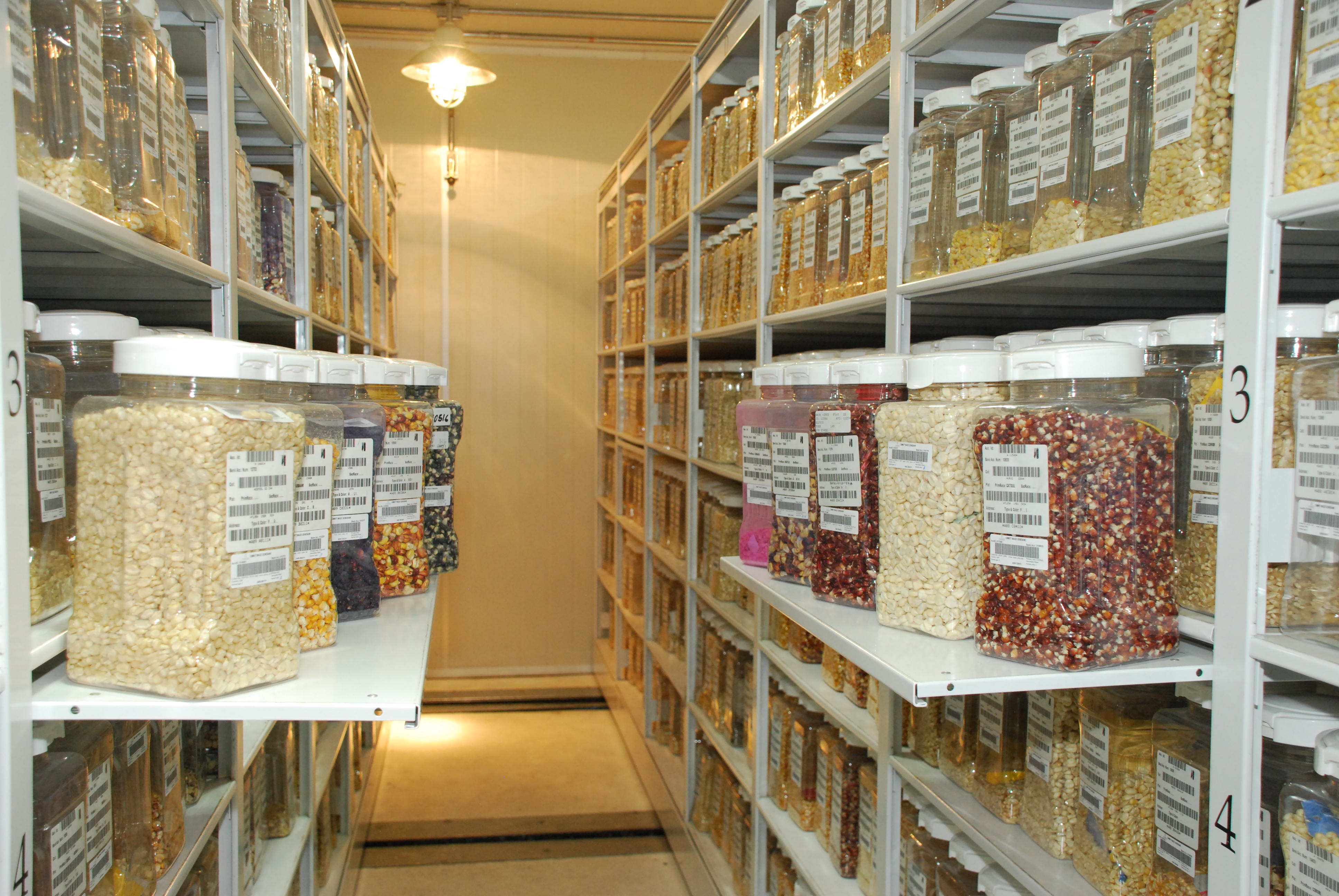HarvestPlus
HarvestPlus aims to reduce hidden hunger and provide micronutrients to billions of people directly through the staple foods that they eat. We use a novel process called biofortification to breed higher levels of micronutrients directly into key staple foods. For more information, visit http://www.harvestplus.org/.
Blindfold test shows taste bias for nutritious orange pro-vitamin A maize
 Nutrition, health and food security
Nutrition, health and food security
“Hidden hunger” due to micronutrient deficiency is a big issue in sub-Saharan Africa, one of the most affected regions with 30% of the population undernourished.
Bill & Melinda Gates Foundation CEO visits CIMMYT
Bill & Melinda Gates Foundation CEO Sue Desmond-Hellmann visited CIMMYT’s headquarters in Mexico.
HarvestPlus World Food Prize laureates benefit more than 10 million people
 Nutrition, health and food security
Nutrition, health and food security
HarvestPlus director Howarth Bouis is one of four winners of the 2016 World Food Prize for research leading to a substantial increase in the availability of nutritious biofortified crops.
From A to Z: Developing nutritious maize and wheat at CIMMYT for 50 years
 Climate adaptation and mitigation
Climate adaptation and mitigation
Over the past 50 years, various research activities have been undertaken to boost protein quality and micronutrient levels in maize and wheat to help improve nutrition in poor communities.
Improving diet through nutritious maize in Colombia
 Innovations
Innovations
A field day was organized at the International Center for Tropical Agriculture to show the advances of biofortified maize in Colombia.
Combating malnutrition: a new zinc-rich variety of wheat
 Nutrition, health and food security
Nutrition, health and food security
New high-zinc varieties of wheat can help improve diets in some parts of India, scientists V.K. Mishra, Ramash Chand and Arun Joshi write in The Indian Express newspaper.
Thirty years of supporting maize farmers in southern Africa
 Nutrition, health and food security
Nutrition, health and food security
CIMMYT’s Southern Africa Regional Office celebrates three decades of developing new maize varieties for farmers across the region.
CIMMYT empowers a new generation of maize breeders in Zambia
 Capacity development
Capacity development
CIMMYT conducted a training course in Zambia for maize breeders teaching modern maize breeding methods.
CIMMYT-SARO steps up efforts in war against malnutrition
 Nutrition, health and food security
Nutrition, health and food security
CIMMYT is stepping up efforts to combat malnutrition through agricultural research and the release of orange maize varieties.
CIMMYT-Bangladesh showcase technology at national fair
 Capacity development
Capacity development
Bangladesh’s Minister of Agriculture Motia Chowdhury (3rd from left) visited the CGIAR Pavilion while inaugurating the National Agricultural Technology Fair held in Dhaka on 5-7 April 2015. In the photo, Zia Uddin Ahmed, CIMMYT GIS and Remote Sensing Scientist, briefs her on the use of the Octocopter in agricultural research and development and other CIMMYT activities in Bangladesh. In her inaugural speech, the Minister mentioned CIMMYT’s role in maize production expansion and mechanization. “Since our land is fragmented, we need to focus on small but power-operated machines,” she said. She also asked organizations working in Bangladesh, such as CIMMYT, to think about how to use solar energy to operate agri-machines.
Vitamin A orange maize: a partnership between agriculture and nutrition bears fruit
 Nutrition, health and food security
Nutrition, health and food security
Farmers in India embrace high-zinc wheat for its nutritional benefits
 Nutrition, health and food security
Nutrition, health and food security
More than 50,000 farmers adopted zinc-biofortified wheat varieties during the 2015-2016 crop cycle.
New technologies to increase coffee-maize system profitability
 Capacity development
Capacity development
To demostrate the advances of the project “Increasing the profitability of maize-coffee systems” conducted by CIMMYT in Colombia over the past 10 years in collaboration with the National Federation of Colombian Coffee Producers (FEDERECAFE, Spanish acronym), two field days were held at the Paraguaycito–Quindío (29 April) and La Catalina–Risaralda (7 May) Experiment Stations belonging to CENICAFE, FEDERECAFE’s research unit. At these events, attended by 158 representatives of the Local Coffee Growers’ Committees and the National Federation of Cereal Growers (FENALCE, Spanish acronym), the latest advances in the areas of climate change, agronomy and genetic improvement were presented.*
SUPER WOMAN: Chhavi Tiwari aids women farmers with zinc-fortified wheat
 Gender equality, youth and social inclusion
Gender equality, youth and social inclusion
